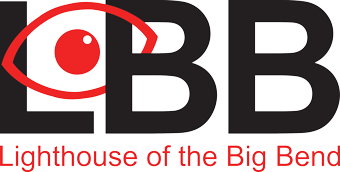Early Intervention
The Early Intervention Program is for children ages 0-5. A Specialist trains children in the areas of child development such as communicative, daily living, sensory and motor, and cognitive development. Services are offered to both the children and their families. Early Intervention Specialists offers instruction in the home, at day care, at school, or in the community. Instruction maximizes the child's vision in a fun and empowering way. The children learn how to manage life without format. Early Intervention is crucial in preventing developmental delays due to vision impairments. A specialized service plan is created for each child to meet their individual goals and needs. The child's specialist reviews the service plan with their family and then provides ongoing communication on the child's progress.
Expanded Core Curriculum Children’s Program
The Expanded Core Curriculum Children’s Program focuses on children ages 6-14. The expanded core curriculum includes compensatory or functional academic skills including communication modes, orientation and mobility, social interaction skills, independent living skills, recreation and leisure skills, career education, use of assistive technology, and visual efficiency skills. These components are outside of the general education curriculum but are crucial for children who are visually impaired. Mastery of the components ensures children are successful throughout their life. Children in the program have one-on-one lessons and group lessons. The lessons cover the components of the curriculum. Each child in the program has a specialized service plan developed to meet their individual goals and needs. The service plan is communicated with the family by the therapist along with ongoing communication of the child's progress.
Transition Program
The Transition Program is for students ages 14–22. The Expanded Core Curriculum is used and also includes vocation training, post-secondary school readiness, and social experiences. Students meet weekly in group sessions and one-on-one. Each student has a personalized service plan to meet the students’ needs and goals. Students will use the skills gained to transition from high school to employment, college, or a vocational school. Services to students in this program include lessons in technology and independent living skills. Students in the Transitions Program improve their independence, grow confidence, and strengthen their overall mental and physical health and well-being.













